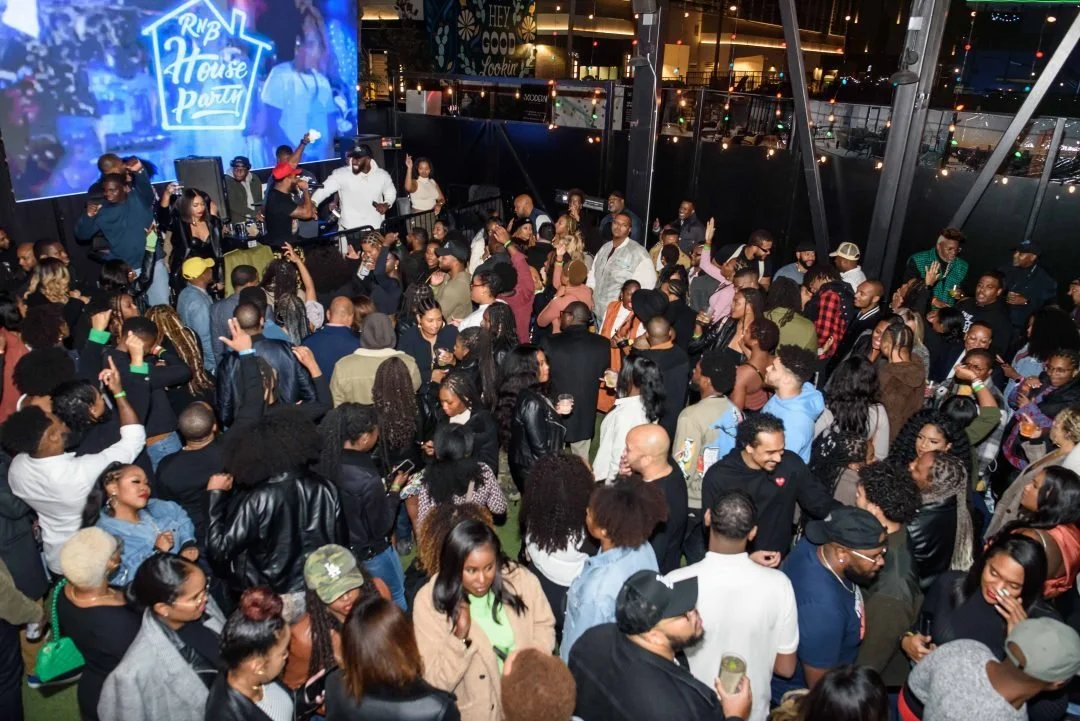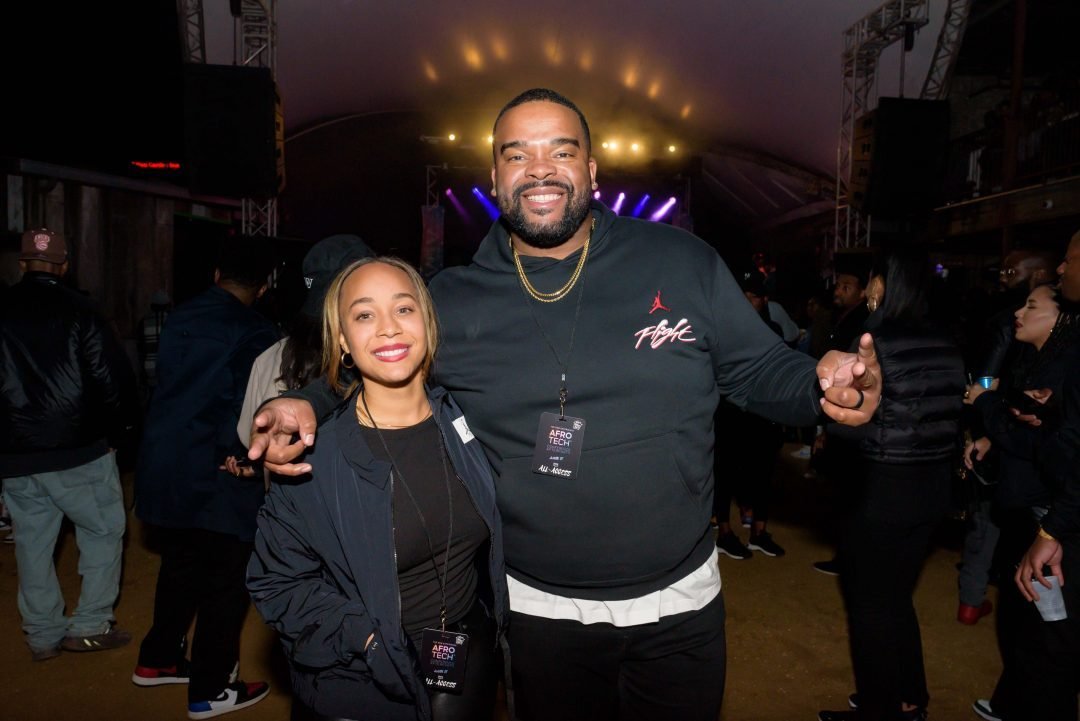Charles Kuykendoll at CultureCon (All rights reserved to owner)
Charles “Beloved” Kuykendoll is the founder of RNB House Party, a dynamic event series that began in 2008 at DePauw University and evolved into a nationwide celebration of R&B culture. In 2023, Blavity Inc. acquired RNB House Party, rebranding it as Blavity House Party, and appointed Kuykendoll as General Manager of Community. In this role, he leads efforts to create inclusive, music-centered experiences that connect multicultural communities. Beyond his entrepreneurial endeavors, Kuykendoll has held leadership positions in talent acquisition at companies like Facebook, J.P Morgan, and Airbnb, and co-hosts the “For Better or Best Podcast” with his wife, Shireen.
You’ve had quite the journey, starting in finance, then moving into big tech with roles at Facebook and Airbnb. What helped you make the final decision to follow the deeper calling of growing the RNB House Party, and commit to going out on your own?
CK: I actually hit the sweet spot professionally when I was doing work that I hated. I hate using the “H word” because the skill set that I learned, even in roles that I was not a fan of, were extremely important as an entrepreneur. They were extremely important when I pivoted out of finance operations, and went into recruiting, which I did actually love as a job. It was the Excel, the pivot charts, all the stuff that I hated doing, but it made me incredible in these other facets. I ended up leaving finance, and the interesting part about that time of my life was when I was doing work that I hated, I was completely depleted after work. It's crazy for people to really think, but I was a house potato. I just stayed in my house, I did not go out, I went to the gym, I cooked dinner, and I never really did anything. I lived in New Jersey; I was not going to New York to party and drink at happy hour. But when I got into a role that energized me, I felt more motivated, and it was in those motivated times that, even though I was putting in a lot of work, I felt like, “Oh, I have capacity to do something else.” For multiple years—honestly, 7 years—I did both. I ran my business, RNB House Party, and was a full-time employee. It wasn't much of a conflict. Parties Friday, Saturday, Sunday. Work Monday through Friday. And I was able to compartmentalize and do both very, very well. Even when I started to get to a revenue from my business that might have made sense for other people to stop working, I actually loved what I did. The money is gonna come. I had a nighttime thing that I was passionate about; I had a daytime thing that I was passionate about. And all of that kind of worked together to give me extra energy, if you will, to be able to manage both, because it was both authentic to me.
Around that seventh year, I ended up getting laid off from my main job. I don't know that, if that did not happen, I would have ever stopped—and that's just the honest reality—because I was doing both so well. After that layoff, I got approached by Blavity for an acquisition. It was an acquisition that hired you to work for them full-time. The money was great, obviously, but it allowed me to pivot my career. Doors have opened up that I never had even imagined. I was a global lead, talent branding events. Now I literally just signed a contract to be the cultural specialist at Hennessy. I didn't know my cap in this independent business, because I didn't have the capacity and the bandwidth to do it. So now, hindsight 20/20, I understand why some people go all the way in for it.
The Precursor, RNB House Party 2022 (All rights reserved to owner)
Share with us a specific event or moment that made you realize the impact of what you were building with RNB House Party? And how did making genuine connections contribute to its growth?
CK: Everybody was doing the Bobby Smirder, I'm dead serious, and I said, no, like, there's a gap for this sing-along R&B. That's really what I wanted. Everything's R&B now—at least 50–60% of the market—but when I started, it was none of that. When I did it, I was scared, and I made my wife do it with me. We called ourselves the “Turn Up Couple” because I didn't feel like I could fill a room in New York by myself as a non-New Yorker. It was a 75-person capacity venue, and we had people begging, trying to get in. Like, it was a blowout event. So that first one—mind you, things going wrong, we didn't monetize them right, it was just so many things we could have learned in the future. I was getting so much media validation, so I realized, “I'm not the only one feeling this way.” This is a gap for other people, and that idea that you got in your head, that you think you're the only person experiencing something—there's other people that need that, and if you just brought it into the world and trusted yourself and your judgment, there's gonna be some positive validation in some way with that. So that was the first thing, that immediate validation of taking that risk that a lot of people are too scared to take—that you actually have something.
The second big moment: it was halfway through the journey, 3–4 years into it, I got an email that somebody got married that met at an RNB House Party. I was like, “Wow, this joint is bigger than me.” It's bigger than the celebs, all of that—people are genuinely finding love in a party that's based around singing and bringing people together. Creating a space of inclusivity, where you feel comfortable singing along and making eye contact with people, that was the environment that I wanted to create.
“ Even if I gotta start from scratch, I would rather start from scratch with a new idea that feels authentic to who 36-year-old Charles is, and not 30-year-old Charles.”
- Charles Beloved
RNB’s acquisition by Blavity marked a major milestone for you. Was partnering with a larger media company part of your long-term strategy from the beginning? And how did you decide that this move would position the brand for greater scalability and longevity?
CK: We were having year-over-year growth that was just incredible. Like, we were doing absolutely fine. We came up on our best revenue year when we were hit with this opportunity to be acquired. But we were having many conversations about, “Hey, I started this when I was 30. I don't want to be the 45-year-old club promoter, that is just not a future of mine.” The way in which I throw parties, I’m literally jumping around, putting on a show. I'm like talent, I'm a performer. So I'm like, “Am I gonna be performing like that?” Charlie Wilson ain't moving the way Charlie Wilson used to move. This has a cap. We needed to find a way to pivot while we were still ahead. And so we had always thought big, but again, as I mentioned, we were scared to take the financial risk. Previously, we had tried somewhat of a concert festival, All-Star Weekend in Chicago, and barely kept ourselves from losing a lot of money. So we were like, ah, this formula for a party and the way we do it works.
Even though we had a vision for something bigger or better, when Blavity approached us with the thought of possibly turning it into a festival, it was like, “Oh, this is the out.” Worst case scenario, this didn't work out. It was not a great deal for Blavity, not a great deal for Charles Beloved. Even if I gotta start from scratch, I would rather start from scratch with a new idea that feels authentic to who 36-year-old Charles is, and not 30-year-old Charles. My interests have changed. I did not have children, I was not even married yet—we were engaged. My life, the things that I'm interested in, have shifted so much. I did it because it was a great business, we had fun. So it actually gave me an out, and it opened up my mind to explore other things that I was passionate about.
Charles Kuykendoll (R) with Blavity founder, Morgan DeBaun (L) (All rights reserved to owner)
The events industry can be nonstop. From late nights to travel to constant planning. How do you create space for your personal and family life while leading in your position at Blavity?
CK: I keep a schedule. I don't want to sacrifice my time with my family to a certain degree. “Daddy gotta go get the coin, you know,” but I'm not missing the recitals, I'm not missing graduation—I'm gonna be there. And so we just put it all on the calendar, and we work around that. When I'm home, I'm home. My party stuff is not Monday through Friday. Monday through Thursday, I'm literally at a computer at 6 AM, working, doing drop-off at 8 o'clock, making breakfast. I cook dinner every night—that is my role in the house—and I do that on my Monday through Thursday.
Everybody knows, literally almost every week, I travel 90% of the weekends. I’m in another city, I get done, but then I get my behind back home. Everybody's like, “Charles, you're on the earliest flights in the history of the world.” I will be in a club till 2, 3, 4 a.m., grab my bags, and be on that 5/6 a.m., because I'm getting back and I want to be able to spend the day with my family. So it is definitely a sacrifice. It's one that just seems to work with our household. I got a strong, strong, strong foundation—holds me down to my kids. Getting that time away is just so great because then when I come back, they're like, “Father's here.” They love seeing me return. We make it work.
What role does representation play in helping the next generation believe that their dreams and aspirations are truly possible?
CK: It's ironic because my barber recently told me that he saw a shift after the acquisition. He was like, “You're still viewing yourself as the common man.” I'm still viewing myself as the everyman, because I'm living new experiences, just trying to figure it all out. I don't have it all together. He was like, “Bro, from a social perspective, you're getting acquired, you're being successful—Black businessman, homeowner with a family.” He said, “You stepped into aspirational, and you don't even know it.” He said your truth-telling, your storytelling, your authenticity in the way in which you live and don't try and make it like “I'm better.” I was like, “Whoa,” because I didn't view that, I didn't view myself in that light.
For the next generation, I want nothing more than to say, literally, you can start from the bottom and get anywhere. Nike says it—just do it. You already know what your life looks like not taking any risks, because you wake up every morning and you do it already. You see it. You're able to actually visualize not doing it. What you don't know is what your life looks like to actually try it, and that is what I want—to encourage people, no matter what that idea is. We just talked about pivoting and reinventing and reimagining. I'm reimagining and reinventing myself in my 30s—from the RNB guy, now to the Caribbean, West Indian cultural-celebrating guy, to the family cook guy. You can always try and build something new, so just always be building.
Want to hear more amazing stories like this? Check out our “More of Us” series! If you want to connect with Charles and support the work he is doing, follow him on social @beloved1906 and his company The Oxtail Off.



